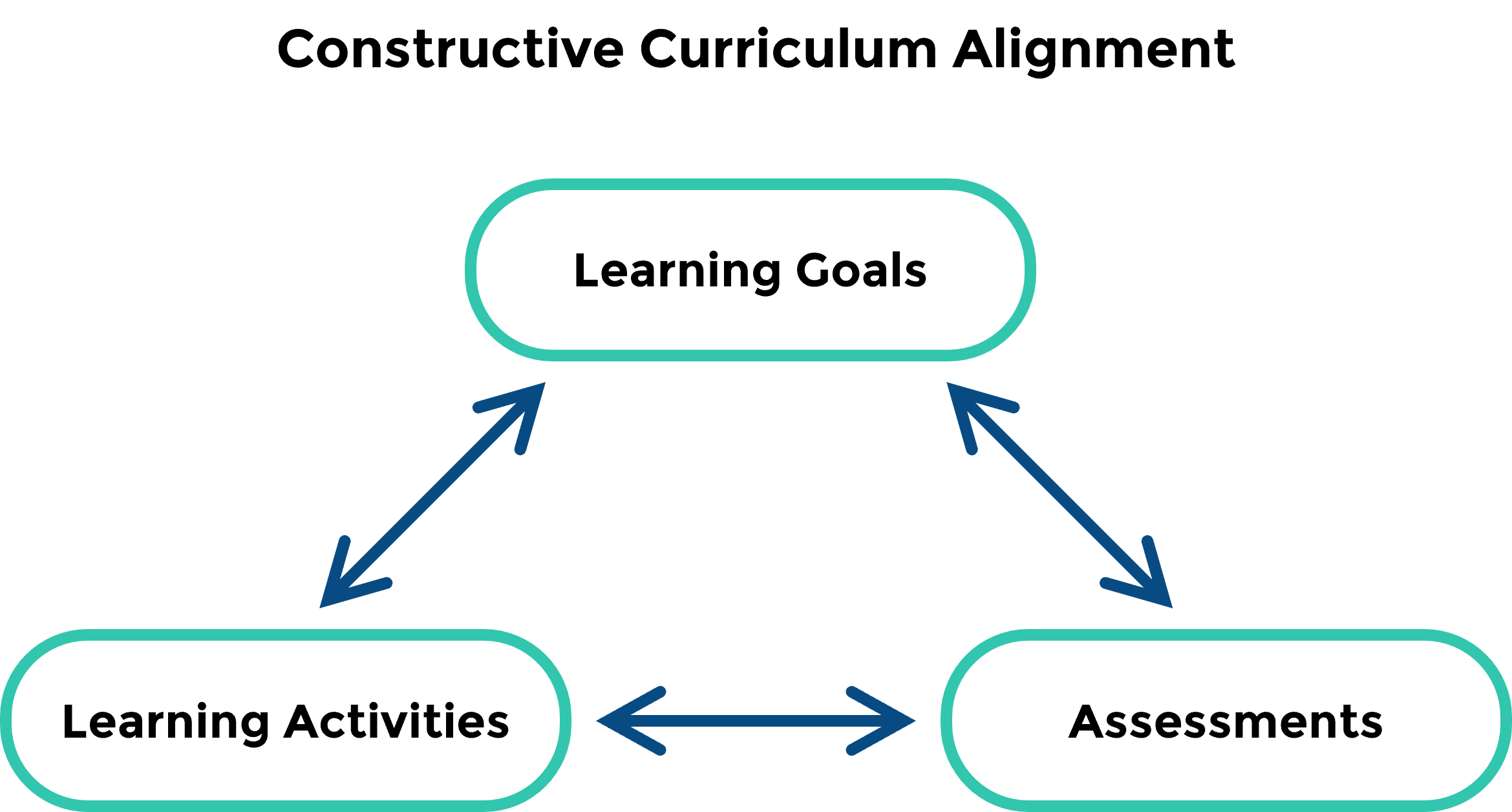Overview of High-Quality Online Assessments
Reflection
High-Quality Online Assessments
Assessment is a process that helps us gather information about learner performance.
The choices we make when we design assessments greatly impact the design and delivery of lessons and learning activities in face-to-face and online contexts[1].
When we design online courses, a well-planned assessment strategy is essential to learner success in virtual environments. This strategy includes a variety of types of assessments that are authentic, culturally responsive, and align strongly with the learning goals in a course.
Authentic assessments engage learners in real-world topics, increase learner motivation and add meaning and purpose to online tasks.
Culturally responsive assessments incorporate learners’ backgrounds, identities and interests, and learning preferences into our planning and design, learners are invested in their progress and develop awareness of their development.[2].

High-quality online assessments support purposeful and meaningful learning experiences when they align with the learning goals and activities of the course. This is called constructive curriculum alignment.

Tip: When designing an assessment, make sure that the skills and knowledge you are measuring align with the learning goals of the course.
Through frequent and ongoing assessment, we can see the progress of student learning, but we also see opportunities to reflect on and improve the quality of learning experiences for students.
Criteria for Effective Online Design
Kumar et al (2019) analyzed data related to the online course design of 8 award-winning online teachers in the United States. The goal was to shed light on what factors influenced these faculty in “exemplary online course design” (p. 161).[3] These award winners shared their attitudes, experiences and approaches to online course design. All of these elements refer to module design, which includes assessment.
✔ Authenticity and relevance
✔ Use of multimedia resources
✔ Student creation of digital content (individual and collaborative)
✔ Student reflection on learning
✔ Clearly articulated purpose of activities, technologies and assessments
As you read through the online assessment strategies presented in this module, consider how each assessment meets these criteria for effective online design.
Apply your Knowledge
Reflection
- Elbow, P. (1993). Ranking, Evaluating, and Liking: Sorting out Three Forms of Judgment. College English, 55(2), 187–206. https://doi.org/10.2307/378503 ↵
- Montenegro, E. & Jankowski, N. A. (2017, January). Equity and Assessment: Moving towards Culturally Responsive Assessment. National Institute for Learning Outcomes Assessment (NILOA). ↵
- Kumar, S., Martin, F., Budhrani, K., & Ritzhaupt, A. (2019). Award-winning faculty online teaching practices: Elements of award-winning courses. Online Learning (Newburyport, Mass.), 23(4), 160. https://doi.org/10.24059/olj.v23i4.2077 ↵
